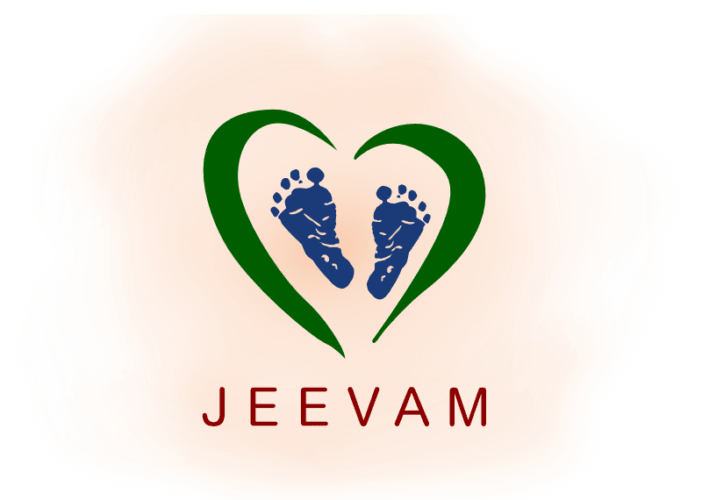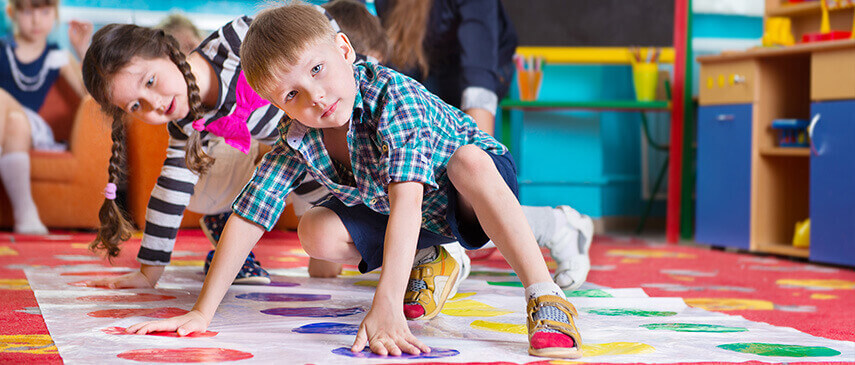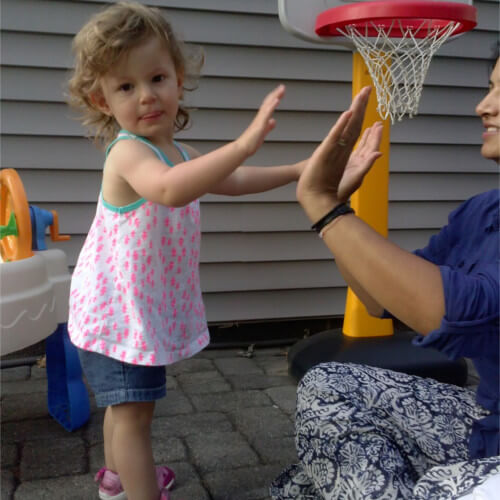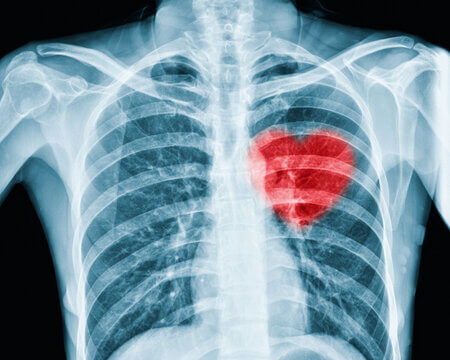When parents come home with a newborn, the importance of “tummy time” comes up repeatedly, but not everyone is savvy about the importance of core strength for children. Colorful toys promise endless hours of tummy time enjoyment for your little one. Yet if you’re like many parents, the reality looks more like this: Place Baby on the floor on his tummy; listen to him scream; shake toys in front of him; listen to more wails of protest; and give up, hoping that one minute of tummy time was sufficient. Ever wonder why the objection? It’s because doing so forced him to work muscles he didn’t want to work, namely his upper back and neck.
Just like you’re apt to resist a lengthy set of crunches or make excuses to avoid another round of sit-ups, your baby resists working his core. Yet learning to stabilize, align and move the trunk of the body is imperative for numerous gross and fine motor skills. Children who lack good core strength tend to slouch with shoulders rolled forward as they sit, experience poor balance, and have little endurance. Building your child’s core strength can be a lengthy process, but important for functioning in school, sports and daily tasks.
Whether your child works with an occupational therapist or you simply want exercises to help develop underused muscles, here are some tricks and exercises you can do with your kid to help develop core strength.
Before You Start
Make it fun
Assuming you want the exercises to stick, they need to be fun. Try different activities until you find some that go over with a grin. It’s helpful to make each exercise into a game, particularly if its one your child can lead. Encourage laughter as you go along, which may mean a little self-depreciating humor to carry through.
Start slow
Before starting any exercise routine, ensure that both you and your child are physically and medically able to complete the activities safely. If your child is in therapy, check with her therapist prior to beginning. And then take it easy until you’re both comfortable progressing. If your child feels fatigued or frustrated, she’s unlikely to stay motivated.
Find motivation
If the word “exercise” is off-putting, consider calling it something else. Whether you choose “superhero training,” “ninja workout” or “circus tricks,” you can create a whole different vibe (and level of interest) through semantics.
Suggested Activities
- Crab Walk – Ask your child to get on all fours with his stomach upwards and bottom in the air. Place a stuffed animal or rolled-up socks on his stomach, and encourage him to “walk” backward for a short distance without dropping the object. Increase the distance as his endurance improves.
- The Wheelbarrow – While your child hoists herself up on her hands, ask her to kick her legs up so that you can hold her ankles. Steer her as far as she’s able to go with her “walking” on her hands.
- Superman Pose – Have your child lie on his stomach and lift his arms and legs as though he’s flying.
- Twister – Play the board game Twister with hands and feet on various colored circles.
- Dead Bug – As your child lies on his back, ask her to bend her knees and keep her feet flat on the ground. As she raises the right knee to her chest, ask her to arch her right arm over her head. Hold it as long as possible and then switch sides. As your child becomes more coordinated, she may be able to lift one leg and the arm on the opposite side.
Not only are these exercises great to build core strength, they can also help your child build self-esteem. As with all activities, try it in moderation and follow the advice of a pediatric therapist before proceeding.
Contact Us Today
Tags: health, Pediatric therapy, exercise, core strength, physical therapy




